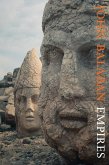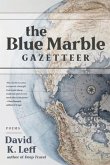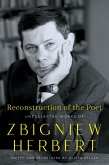Nobel Prize-winner Tomas Tranströmer explores the personal and political, the ecological and existential, through poems that expand like the widening scope of a telephoto lens.
With slow strokes and subtle, rich lines, The Blue House: Collected Works of Tomas Tranströmer is evidence of a Nobel Prize-winning poet tracing the world with his pen. A stunning testament to an illustrious career, The Blue House gathers poems and writings from Tranströmer's fourteen collections into a single book. Original Swedish sits alongside their English translations as Patty Crane translates his words into revelatory language acute in the understanding of human change and loss.
Subtle in politics and exact in imagery, the poems of The Blue House range from agile haiku to cinematic prose. Social phenomena are observed in rich detaila dictator's bust presiding over a train car of doomed passengersand the collection is propelled by empathy and curiosity. Under Tranströmer's watchful eye, no subject is overlooked: Milij Balakirev, the Russian composer; Nils Dacke, the Swedish peasant who led a rebellion against the king; and him, the stranger who forgets his name by the roadside. From the personal to the political to the existential, Tranströmer's poems act as a telephoto lens, granting us reinvigorated access to the world we live in.
With slow strokes and subtle, rich lines, The Blue House: Collected Works of Tomas Tranströmer is evidence of a Nobel Prize-winning poet tracing the world with his pen. A stunning testament to an illustrious career, The Blue House gathers poems and writings from Tranströmer's fourteen collections into a single book. Original Swedish sits alongside their English translations as Patty Crane translates his words into revelatory language acute in the understanding of human change and loss.
Subtle in politics and exact in imagery, the poems of The Blue House range from agile haiku to cinematic prose. Social phenomena are observed in rich detaila dictator's bust presiding over a train car of doomed passengersand the collection is propelled by empathy and curiosity. Under Tranströmer's watchful eye, no subject is overlooked: Milij Balakirev, the Russian composer; Nils Dacke, the Swedish peasant who led a rebellion against the king; and him, the stranger who forgets his name by the roadside. From the personal to the political to the existential, Tranströmer's poems act as a telephoto lens, granting us reinvigorated access to the world we live in.
Dieser Download kann aus rechtlichen Gründen nur mit Rechnungsadresse in A, D ausgeliefert werden.









